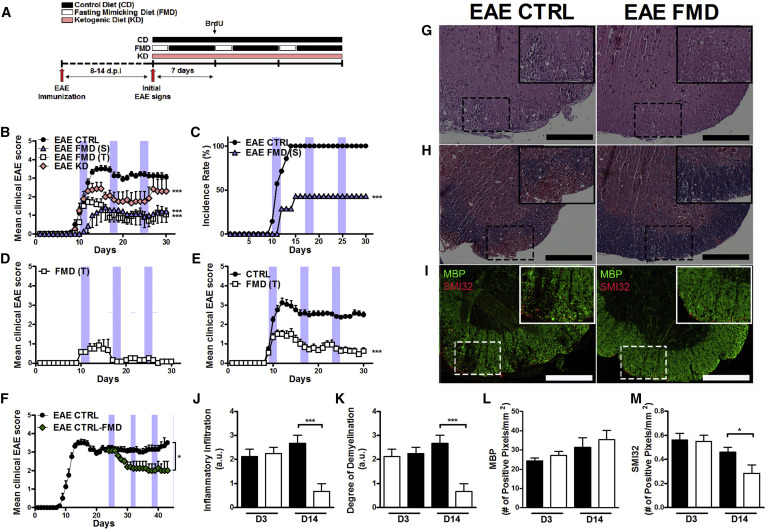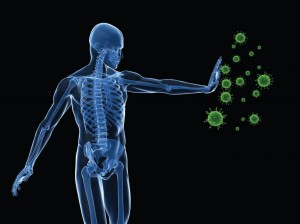Multiple sclerosis (MS) is an autoimmune disorder characterized by T cell-mediated demyelination and neurodegeneration in the CNS (Friese and Fugger, 2005, Pender and Greer, 2007, Sospedra and Martin, 2005). In experimental autoimmune encephalomyelitis (EAE), an animal model for MS, activated myelin-specific TH1 and TH17 cells cross the blood-brain barrier and migrate into the CNS, where they are activated by local antigen-presenting cells (APCs) and promote inflammation (Dhib-Jalbut, 2007, Fletcher et al., 2010, Goverman, 2009,Hemmer et al., 2002). This inflammatory process leads to oligodendrocyte death, demyelination, and axonal damage, which eventually cause neurologic damage (Lucchinetti et al., 1999, Raine and Wu, 1993). Although oligodendrocyte precursor cells (OPCs) can migrate to the sites of MS lesions, they often fail to differentiate into functional oligodendrocytes (Chang et al., 2002, Wolswijk, 1998). Several MS treatment drugs have been effective in reducing immune responses, but their impact on long-term disease progression, accrual of irreversible neurological disability, and immune system function remains largely unclear, underlining the need for novel therapeutic strategies (Wingerchuk and Carter, 2014). Therefore, effective treatments for MS may require not only the mitigation of autoimmunity but also the stimulation of oligodendrocyte regeneration and restoration of a functional myelin sheath. Periodic cycles of prolonged fasting (PF) or of a fasting mimicking diet (FMD) lasting 2 or more days can increase protection of multiple systems against a variety of chemotherapy drugs in mice and possibly humans (Fontana et al., 2010,Guevara-Aguirre et al., 2011, Lee et al., 2010, Longo and Mattson, 2014). Moreover, PF or an FMD reverses the immunosuppression or immunosenescence of either chemotherapy or aging through hematopoietic stem cell-based regeneration (Brandhorst et al., 2015, Cheng et al., 2014). Chronic caloric restriction, a ketogenic diet (KD), and intermittent fasting have been shown to help prevent EAE by reducing inflammation and enhancing neuroprotection when administered prior to disease induction or signs (Esquifino et al., 2007, Kafami et al., 2010, Kim do et al., 2012, Piccio et al., 2008), but dietary interventions have not been reported to be effective as therapies for EAE or MS or to promote myelin regeneration.
Here, we report on the effects of low-calorie and low-protein FMD cycles as a treatment in MS mouse models, and we investigate the mechanisms involved. Furthermore, we report preliminary results on the safety and feasibility of a FMD and a KD in patients with relapsing-remitting multiple sclerosis (RRMS).







